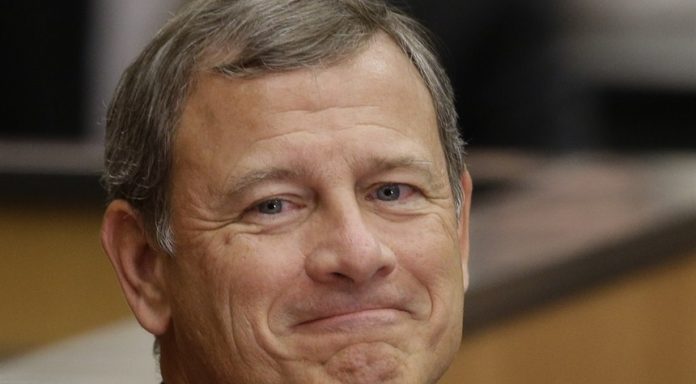Chief Justice Roberts published his year-end report. It called on federal judges to adhere to ethics rules. After James Grimaldi, of the Wall Street Journal, and a team of journalists discovered that 131 judges in 685 cases had refused to withdraw from hearing cases in cases in which they had a financial stake, Roberts made these remarks.
Roberts cited the WSJ inquiry in his report but he misunderstood the details. He wrote, “Let’s be clear.” “The judiciary treats this matter seriously. We expect judges to adhere to the highest standards and those judges violated ethics rules.” Roberts then made an unfounded claim about a small number of judges doing so. Roberts wrote, “But I do want these lapses to be understood.” According to The Wall Street Journal’s data, the 685 cases identified represent a small fraction of the 2.5 million civil cases filed at the district courts during the nine-year period covered by the study. This is a 99.97% compliance rate.
Your honor, this is not so fast. Grimaldi replied, “The Journal’s original tally was an underestimate; it was impossible due to the peculiarities in the judiciary’s financial disclosure process and incomplete information on case litgants.” Grimaldi also criticized Roberts’ numbers. Grimaldi claims that if the Journal had reviewed millions more cases, the number would have been staggering. The Journal actually found more than 800 violations in its updated report.
It’s a hot topic and a problem in all 50 states. It is so common that it inspired a 27 part investigative series right on PJ Media — but that was just one state. A new series will be launched to investigate the Montana judiciary’s shenanigans (stay tuned for the expose very soon). The series will focus on judges who were lobbying against legislation that would make them accountable for their misconduct. Roberts described the improper judicial behavior as “unintentional oversight.” Perhaps that is because Roberts was caught in a similar scandal. The New York Times reported Roberts did not withdraw from a case where he received more than $100,000.
Although Chief Justice Roberts didn’t mention it, similar lapses have not been missed by the Supreme Court. For example, Chief Justice Roberts discovered that he had 1,212 shares in one parent company after participating in oral arguments in a patent lawsuit in 2017. According to a financial disclosure report, the shares were worth more than $100,000.
“The chief justice’s chambers conducted an ordinary conflict check, but failed to detect this potential conflict,” said a letter sent by a court official to patent lawyers.
Roberts might be tempted to dismiss the misconduct as unintentional since he was guilty of it. However, this doesn’t excuse judges from using their power for personal gain. Who is responsible for these judges? It’s usually a judiciary oversight panel… composed of other judges.
This sounds like a fox guarding the chicken house. However, in Montana, the current judicial accountability boards have a 98% dismissal ratio. Members of the BAR run Missouri’s judicial accountability board. They rarely answer complaints and dismiss them when they do. It’s impossible to know the Missouri dismissal rates because the oversight committee is so secretive. However, I have never met anyone who complained through official channels to them. Texas has a similar dismissal rate, and the accountability panel meets only once every two years for the public’s complaints. Many of these people have waited for years to get a reply. Two St. Clair County judges used heroin and cocaine in Illinois. They were caught after one of them died from overdosing. Two judges from the same county were caught driving in open containers and drinking while driving their car. They were allowed to continue on the bench. Judges are not held to any standards and no one is concerned about breaking actual laws.
Consider the decisions made by judges — whether to take your children out of your home, who will have custody of them, and whether you are deprived or free — you’ll see that there are standards for behavior. This country is at risk if they fail to do so.




